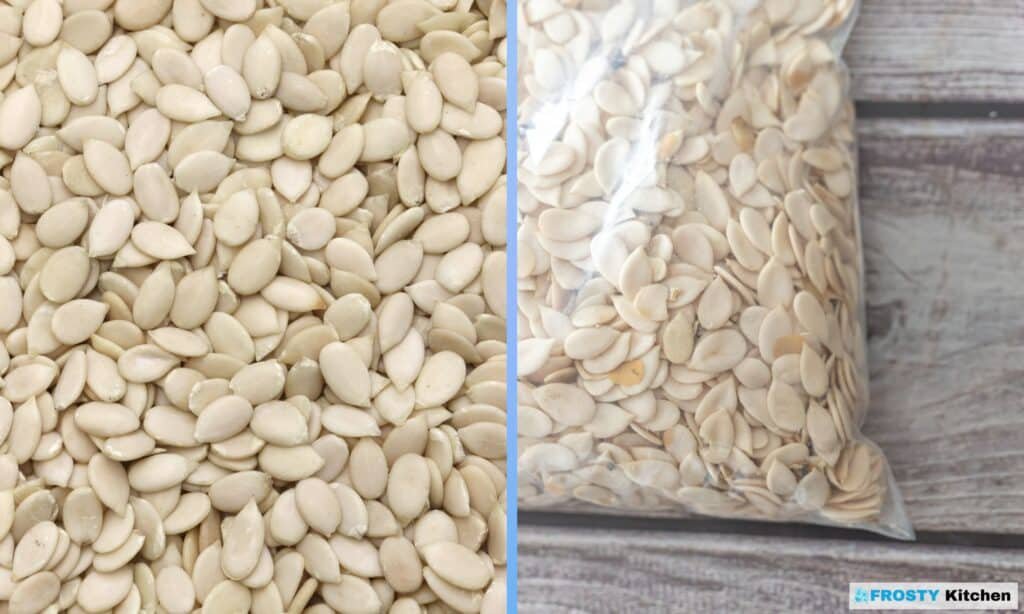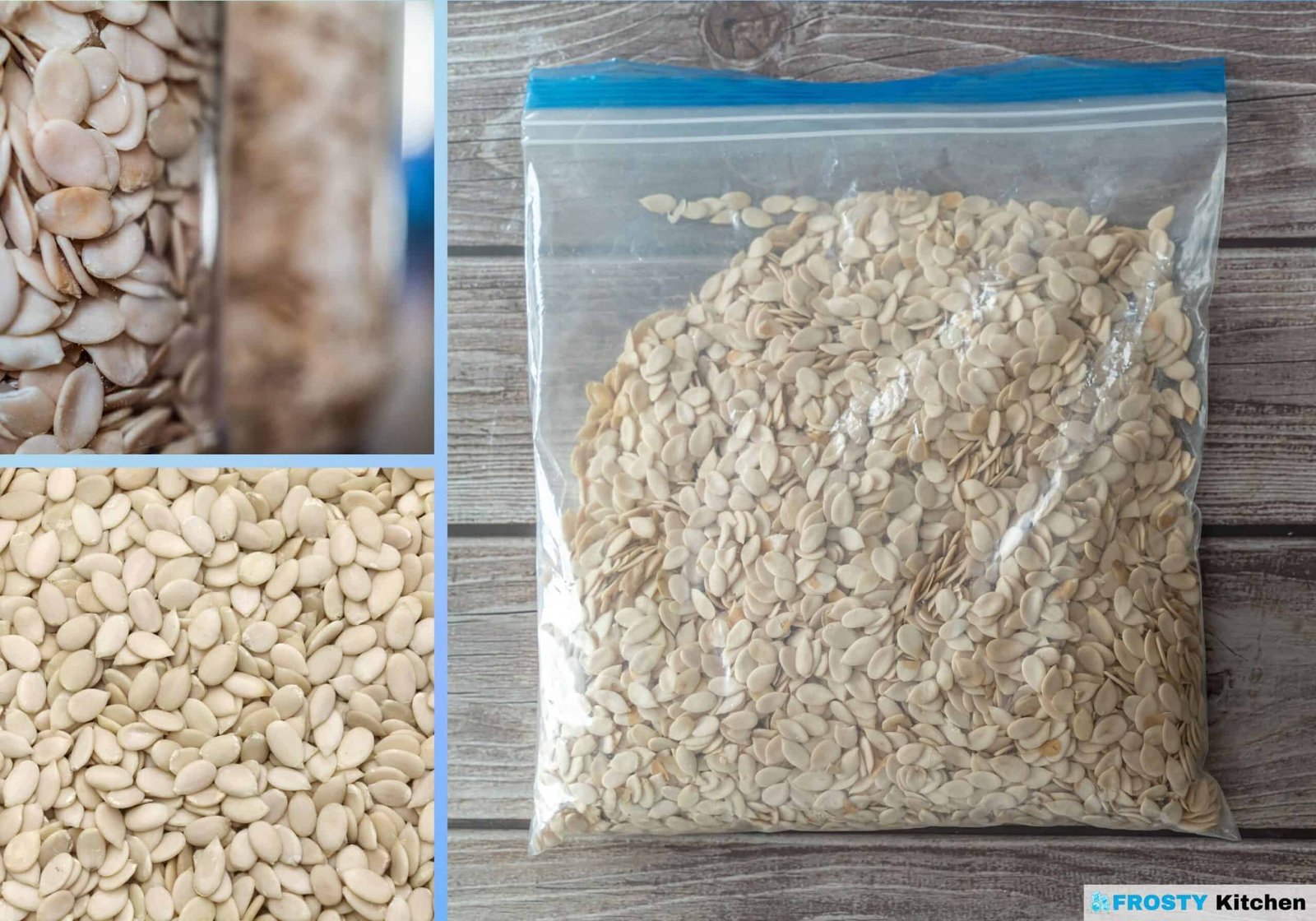Embarking on a culinary expedition often entails preserving the essence of ingredients that define the culture of a cuisine. Egusi seeds, with their rich, nutty flavor, form the core of many African delicacies. Your quest for preserving this melon treasure has brought you to a guide that’s crafted to equip you with the knowledge to freeze Egusi seeds proficiently. This guide is your companion in ensuring that the essence of Egusi seeds remains intact, ready to enrich your dishes whenever the culinary muse strikes.
Egusi seeds, also known as Melon seeds, are revered in the vast culinary landscapes of Africa. Their unique flavor and texture form the backbone of numerous traditional dishes, portraying a rich heritage of African cuisine.
As you delve deeper into this guide, you will traverse through the journey of Egusi seeds from their historical roots to the modern-day kitchen, uncovering the nutritional treasures they encapsulate. The saga of Egusi seeds is as enriching as their nutritional profile, and this guide is the key to unlocking that saga. Read on to unveil the methods to freeze Egusi seeds proficiently, ensuring their readiness to jump into the pot, and enriching your meals with their wholesome goodness.
What is Egusi Seeds?
Egusi Seeds are the seeds of certain species of melons, particularly the species indigenous to Africa. They are known for their rich, nutty flavor and are a staple in many traditional African dishes.
Origin and History
- Egusi seeds have their roots deeply embedded in the African continent, where they have been a vital part of the local diet and culture for centuries.
- Their journey reflects the agricultural heritage of the African regions, portraying a narrative that’s intertwined with the sustenance and culinary evolution of the communities.
Nutritional Value
- Rich in protein, healthy fats, and various essential minerals, Egusi seeds offer a nutritional boost.
- The seeds also have antioxidant properties that contribute to overall health and wellness, making them a valued ingredient in a balanced diet.
Benefits of Freezing Egusi Seeds
- Nutritional Preservation: Freezing helps preserve the nutritional integrity of Egusi seeds, ensuring you reap the benefits whenever you decide to use them.
- Extended Usability: By freezing Egusi seeds, you extend their usability, ensuring they remain fresh and flavorful for your culinary endeavors.
- Convenience: Having a stash of frozen Egusi seeds at hand simplifies the cooking process, especially when preparing traditional African dishes.
Preparing Egusi Seeds for Freezing
- Packaging: Store Egusi seeds in airtight containers or vacuum-sealed bags to prevent moisture and freezer burn.
- Portioning: Dividing the seeds into usable portions before freezing facilitates easy use afterward.

Step-by-Step Guide to Freezing Egusi Seeds
Preserving Egusi seeds is an endeavor that pays off well in the culinary realm. The methods outlined below are your roadmap to ensuring that the nutty essence of Egusi seeds remains intact, ready to enrich your dishes whenever required.
Method 1: Freezing Whole Egusi Seeds
- Preparation: Ensure the seeds are clean and dry.
- Storage: Transfer them to airtight containers.
- Freezing: Place the containers in the freezer ensuring they lay flat for uniform freezing.
Method 2: Freezing Ground Egusi Seeds
- Preparation: If you prefer using ground Egusi seeds, grind them to your desired consistency.
- Storage: Store the ground seeds in airtight containers or vacuum-sealed bags.
- Freezing: Place them in the freezer, laying flat for uniform freezing.
Refreezing Egusi Seeds
Refreezing Egusi seeds is not advisable as it may lead to a loss in nutritional value and can potentially introduce moisture, leading to spoilage.
Moreover, refreezing might significantly diminish the quality of Egusi seeds. It’s advisable to portion the Egusi seeds adequately before the initial freezing, thus avoiding the need for refreezing.
Storage Duration and Factors Affecting it
- Duration: Egusi seeds can be stored in the freezer for up to 6 to 12 months, depending on the initial freshness and the storage conditions.
- Storage Containers: Utilizing airtight containers or vacuum-sealed bags is pivotal to preventing freezer burn and preserving the quality of Egusi seeds.
- Factors: The freshness of the seeds at the time of freezing, the method of freezing, and the consistency of the freezing temperature significantly affect the storage duration.
Frequently Asked Questions
Q1: How can I use frozen Egusi seeds?
- Utilizing frozen Egusi seeds is a straightforward endeavor. They can be used directly from the freezer without any need for thawing, retaining their nutritional goodness.
- The convenience associated with frozen Egusi seeds simplifies the cooking process, allowing you to focus on crafting nutritious and traditional dishes imbued with the flavors of Africa.
Q2: Do Egusi seeds lose their nutritional value over time?
- Yes, Egusi seeds can lose their nutritional value over time, especially when exposed to unfavorable conditions like air, light, or moisture. However, freezing significantly slows down this process, preserving its nutritional essence for a longer duration.
- Additionally, storing Egusi seeds in airtight containers in a cool, dark place can also aid in preserving their nutritional value. The advantage of freezing is unparalleled as it locks in the nutritional goodness, ensuring the Egusi seeds retain their essence whenever you decide to use them.
Q3: Can I grind Egusi seeds before freezing?
- Grinding Egusi seeds before freezing is a practical approach if you plan to use them in ground form. It allows for quicker freezing and thawing, which can be a real-time save during busy cooking sessions.
- However, it’s essential to note that whole Egusi seeds retain their nutritional value better than ground Egusi seeds. If you decide to freeze ground Egusi seeds, ensure they are stored in airtight, freezer-safe containers to minimize exposure to air and other elements that could degrade their quality.

